March 6, 2025 | 02:37 GMT +7
March 6, 2025 | 02:37 GMT +7
Hotline: 0913.378.918
March 6, 2025 | 02:37 GMT +7
Hotline: 0913.378.918
Farmers of Tan Lap - Dap Da Agricultural Cooperative (Dap Da hamlet, Tan Hoi commune, Tan Hiep district, Kien Giang province) have just finished harvesting the summer-autumn rice crop of 2023 amid the boiling price of rice in the Mekong Delta. Boats of merchants are constantly on the river looking to buy rice. Ho Hoang Thu's family members are pretty excited. He could not have imagined that rice farming is now so leisurely, without having to wade through the mud and without dirty hands, but at the end of the crop, the crop is still thriving, and the profit is high.
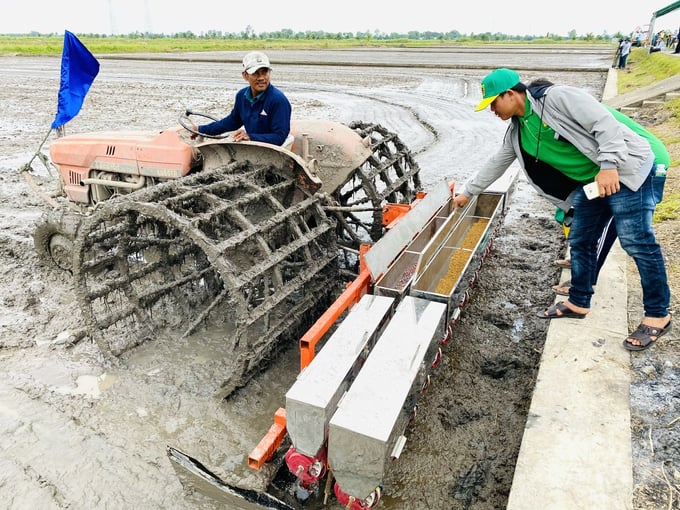
Smart rice farming, using cluster seeding equipment combined with specialized fertilizer inclusion, helps to reduce labor and saves about 30% of fertilizer compared to the normal way. Photo: Hoang Vu.
The program of smart rice farming to adapt to climate change, applying synchronous mechanization in all stages is a model developed by the National Center for Agricultural Extension in collaboration with Binh Dien Fertilizer Joint Stock Company (called Binh Dien for short) and the agricultural extension centers of 13 provinces and cities in the Mekong Delta region have been implemented for many years, including the summer-autumn rice crop in 2023. Accompanying the program are also mechanized machine suppliers. agriculture, helping to free up labor for farmers completely.
Tan Hiep farmers have long established the practice of sowing orchids with a very thick density. The rice seed amount is 140-240 kg/ha. After sowing the seed the day before, the next day, the ground was green, and that was the eye. Therefore, farmers were surprised to see the cluster sowing machine provided by Saigon Kim Hong Trading - Service Co., Ltd., using only 60 kg/ha of rice seed, but the rice grew as if it was transplanted by a machine.
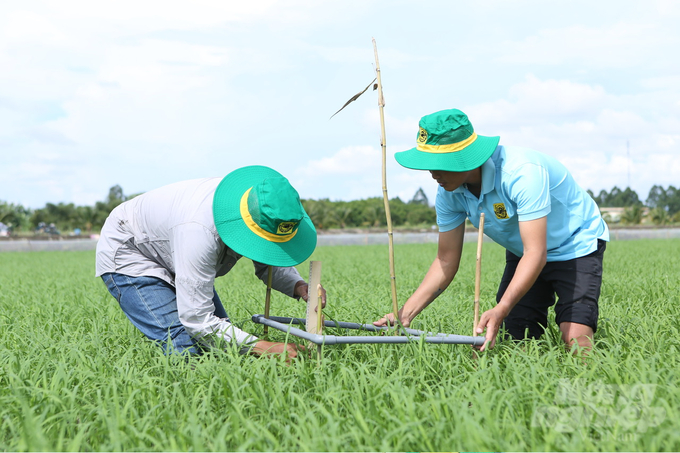
Sowing the cluster by machine using only 60kg/ha of seed rice soon cleared farmers' doubts when the rice more than 1 month old had strong buds and covered the field. Photo: Hoang Vu.
Dr. Le Van Dung, Deputy Director of Kien Giang Agricultural Extension Center, said that the smart rice farming model adapts to climate change to transfer to farmers new farming techniques, apply mechanization, reduce labor, reduce production costs, and increase economic efficiency. Farmers use synchronously advanced rice farming methods, such as the "1 must 5 reduce" process, integrated pest management (IPM), alternate wet-dry watering techniques, lining, and specialized fertilizer on rice according to the fertilizer formula of Binh Dien.
Recently, the agricultural extension system, in cooperation with Binh Dien, Bayer Vietnam Co., Ltd., and Saigon Kim Hong Company, has built hundreds of advanced rice farming models in the Mekong Delta. Along with technology transfer to farmers, these models are also invested in a system of water monitoring and pest monitoring stations and mechanized into production. There are 22 salinity monitoring stations, pH measurement installed on main rivers and canals in areas affected by saline intrusion, and one automatic pest monitoring station at the Mekong Delta Rice Institute. Farmers and technicians can access this data for free on the Mekong Rynan application.
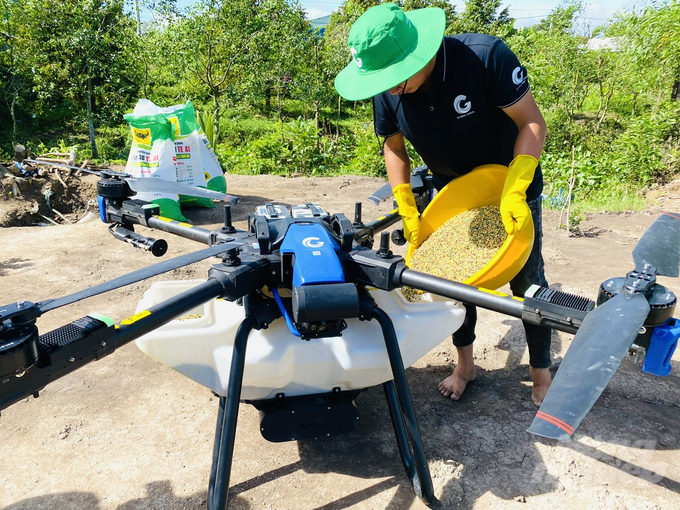
Applying synchronous mechanization in rice production has liberated the labor of farmers. Photo: Hoang Vu.
According to Phan Van Tam, Marketing Director of Binh Dien Fertilizer Joint Stock Company, rice farming is currently at a very high level of intensive farming; the land has little rest time between crops, and the amount of silt is deposited in the fields. In addition, the adverse effects of weather due to the impact of climate change make rice farmers face many difficulties.
From 2016 to now, many programs have supported rice farmers to adapt to climate change, including the smart rice farming program implemented by Binh Dien in collaboration with other units. Experiencing rice crops each year, up to now, nearly 500 models have been implemented in 13 provinces and cities in the Mekong Delta.
From the effectiveness of the smart rice farming program, many rice farming projects have been implemented by localities in recent years on a vast scale. The smart rice farming program has also trained, trained, and transferred science and technology to thousands of farmers. In particular, the farmers directly involved in implementing the model are very well trained, have the good technical knowledge to apply it to production actively, and have the skills to transfer technical solutions to other farmers in the area.
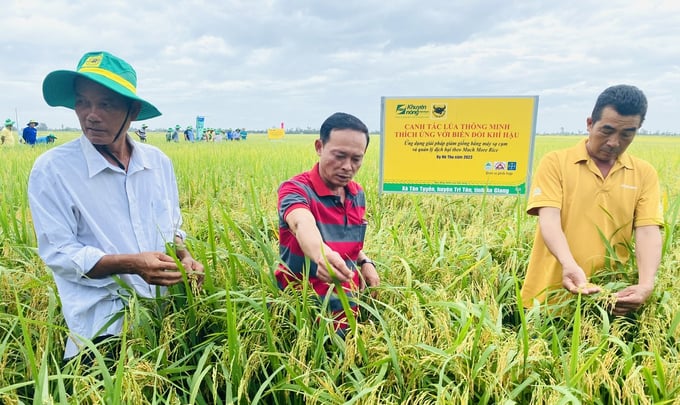
Applying smart rice farming helps the rice plants to be very healthy. Photo: Hoang Vu.
In An Giang, the smart rice farming program was implemented in Tri Ton district on nearly 20 hectares, including the model and control fields. Farmer Le Van Ngo directly participates in the smart rice farming model, applying the solution of seed reduction by cluster sowing machine and pest management according to Much More Rice ("increasing yield - increasing quality, increasing profits of farmers", the process initiated by Bayer Vietnam Co., Ltd.).
According to the technical staff of An Giang Agricultural Extension Center, smart rice farming and mechanization of sowing and seeding both reduce rice seeds and save other inputs such as fertilizers, pesticides, and natural water resources… Using Binh Dien's specialized fertilizer and applying fertilizer according to the recommended formula helps to increase the efficiency of use, reducing 1 time of application compared to traditional farming. According to the Much More rice process initiated by Bayer Vietnam Co., Ltd., pest management minimizes the environmental impact, protects natural enemies well, grows well, ensures productivity, and brings efficiency to the highest economy.
Translated by Tu Quyen
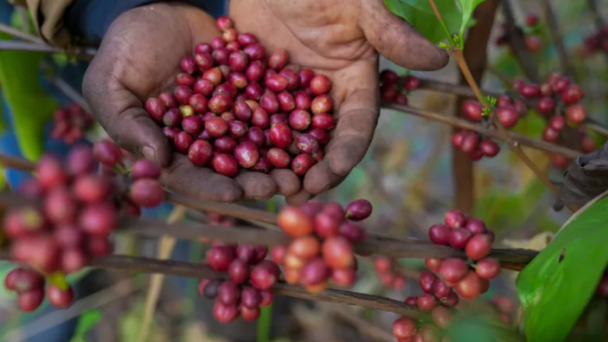
(VAN) Coffee made from excelsa tastes sweet — unlike robusta — with notes of chocolate, dark fruits and hazelnut. It’s more similar to arabica, but generally less bitter and may have less body.
/2025/03/03/4835-3-154232_702.jpg)
(VAN) Currently, farmers in Phu Yen province are focusing on disinfecting and cleaning barns in order to repopulate favorably and ensure disease safety.

(VAN) Khanh Hoa Province's veterinary authorities advise local farmers to fully vaccinate their livestock as a crucial measure to prevent disease outbreaks and promote effective repopulation.
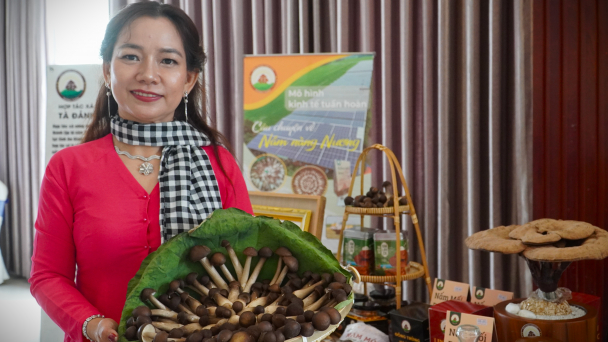
(VAN) Turning waste into resources and integrating solar power, a medicinal mushroom cultivation model run by a woman in An Giang not only reduces costs but also generates a sustainable source of income.
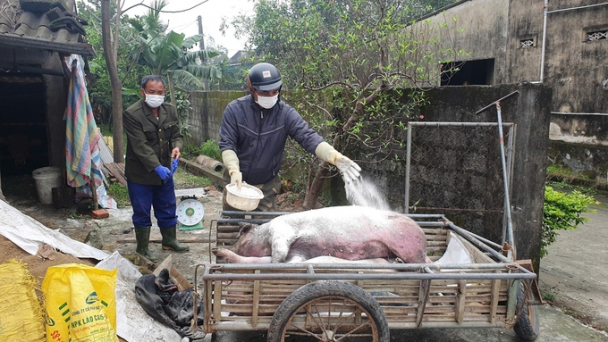
(VAN) The African swine fever has quietly spread in the districts of Cam Xuyen and Thach Ha in Ha Tinh City, posing a high risk of further outbreaks and causing heavy losses for local farmers.
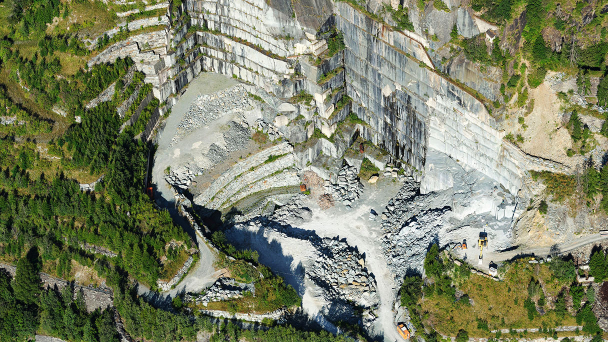
(VAN) New material that could be spread on fields locks up CO2 in minerals.
/2025/02/24/0207-1-194947_615.jpg)
(VAN) Digital transformation and the application of science and technology are considered breakthrough solutions to help realize current goals of developing agricultural production.